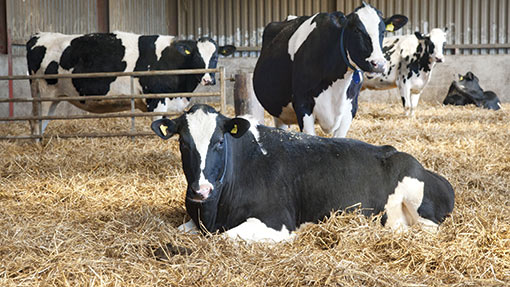Ask the Vet: How to treat E coli mastitis in dairy cows

Tonia Grinham, a vet at Westpoint Vets, Three Counties practice, answer’s a reader’s question about E coli mastitis.
Q. What’s the best way to treat E coli-type mastitis without calling out the vet?
A. E coli is the most prevalent environmental pathogen causing mastitis in dairy cows.
It is present in large numbers in faeces, meaning that dirty bedding and lying in yards are big risk factors. E coli can cause a range of mastitis presentations, from a simple clinical mastitis that self-cures, through to toxic mastitis.
A “simple” E coli mastitis results after rapid multiplication of the bacteria in the mammary gland. This results in large migration of white bloods cells into the quarter, raising the somatic cell count and promptly eliminating the infection.
Ask the Vet
Advice given is based on the information provided and cannot necessarily apply to situations where other factors exist. If the advice required relates to a specific animal or disease problem, the reader should contact their own vet or adviser with appropriate knowledge of the particular circumstances.
This type of mastitis should readily respond to treatment with antibiotic intramammary tubes. Using anti-inflammatories will reduce clinical signs, lower somatic cell counts and result in better cure rates.
A toxic mastitis occurs when bacteria enters the blood stream, which elicits an acute immune response, resulting in the classic toxic signs. The most important treatment in these cases is fluids to correct dehydration and support blood pressure.
Anti-inflammatories should be given to dampen down the immune response that is causing the symptoms. Stripping out the quarter is imperative to remove the toxins, which can be facilitated by the use of oxytocin.
Agree suitable antibiotic and anti-inflammatory protocols beforehand with your vet for both clinical and toxic mastitis so you are prepared for when they occur.
Ask the Vet is a regular feature where readers’ questions are answered by vets at Westpoint Veterinary Group. Send your questions via email to fwlivestock@rbi.co.uk or post on the forums
